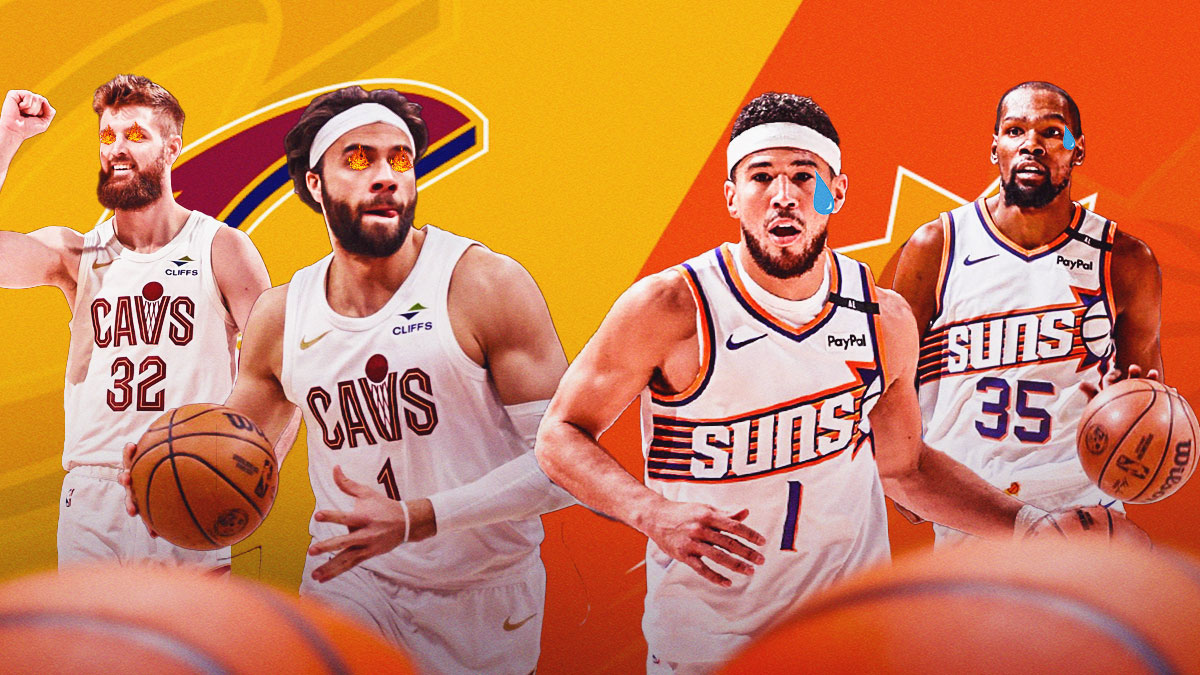Cavs' defensive gameplan shuts down Suns in 118-92 win

Yesterday at 08:13 PM
For most players, defending Phoenix Suns superstar Kevin Durant, arguably the greatest scoring threat ever, is no easy task. For the Cleveland Cavaliers, without two defensive stars, Evan Mobley and Isaac Okoro, the task of defending Durant went to Cavs forward Dean Wade.
While it might have looked like Durant, who had 23 points on 9-16 shooting, shredded Wade, looking at the box score doesn’t paint a complete picture. It wasn’t about how many points Durant scored against Cleveland. Instead, how and where Durant took his shots mattered more to the Cavs.
“We really upped our physicality. We really made those guys work,” said Cleveland head coach Kenny Atkinson postgame. “I think our physicality was some of the best this year in terms of getting into guys. We turned them over, and our depth shone through once again.”
While Wade was the central figure in containing Durant, this was all part of a game plan Atkinson and his staff had devised to slow down a Phoenix offense that ranks in the top ten in most metrics. Cleveland wanted to ensure that no matter who was on the court, Phoenix couldn’t find a rhythm.
With that in mind, it’s even easier to understand how the Cavs shut down the Suns and how Cleveland could dominate Phoenix at home.
Breaking down how the Cavs blotted out the Suns
Sure, Durant, a top-ten player scoring-wise, got his points. However, no matter who Cleveland leaned on to defend Durant, they only allowed the sharpshooter to connect on one three-point, his lone perimeter attempt.
The Cavs continually funneled Durant toward the basket but would continually wall him off before he could reach the paint. This would lead to inefficient midrange attempts, which, for Durant, is an easy two points.
But despite every time Durant connected on a midrange attempt, Cleveland responded with a quick, efficient three-pointer. After that, the Cavs’ defensive calculus was foolproof, allowing Cleveland to cruise to one of their easier season wins.
“We knew they were a great mid-range shooting team,” said Atkinson to ClutchPoints. “It’s not against a lot of teams that we say, ‘Oh, you know, hey, they shoot mid-range!’ So our emphasis was, sure, get them to the mid-range, but keep contesting. We usually say that about three-point shooting, but this team was different.
“That caused a few fouls with contesting so hard we fouled them a few times, which you don’t want. But [if] we really emphasize [that if] they’re going to shoot a ton of mid-range, keep contesting at a high level, and live with that approach.”
The trickle-down effect Cleveland’s defense had on Phoenix’s offense
The Cavs significantly disrupted the Suns’ offensive flow by effectively limiting Kevin Durant’s impact, forcing him to rely on mid-range shots. This strategy resulted in a lackluster performance from Devin Booker, who managed only 15 points on a 42.9% shooting average. Similarly, Bradley Beal contributed just five points on 2-for-4 shooting despite spending nearly 25 minutes on the court, leaving his impact on the game minimal.
Cleveland’s defense excelled in neutralizing Phoenix’s key players, stifling a team that averages 112.7 points per game to 92 points. This starkly contrasts the Cavs, who typically score an impressive 122.0 points per game. If Atkinson hadn't opted to rest his starters with seven minutes remaining in the fourth quarter, the final score and point differential could have been even more lopsided.
Usually, wins like this fade into the background throughout the grind of an 82-game NBA season. However, given that the Cavs were undermanned against a star-studded Suns lineup, it’s remarkable that they managed to turn this matchup into what looked like a routine victory.
Cleveland has consistently relied on its depth this season, but in high-pressure situations, this Cavs team possesses more resilience and skill than it may first appear.
The post Cavs’ defensive gameplan shuts down Suns in 118-92 win appeared first on ClutchPoints.


